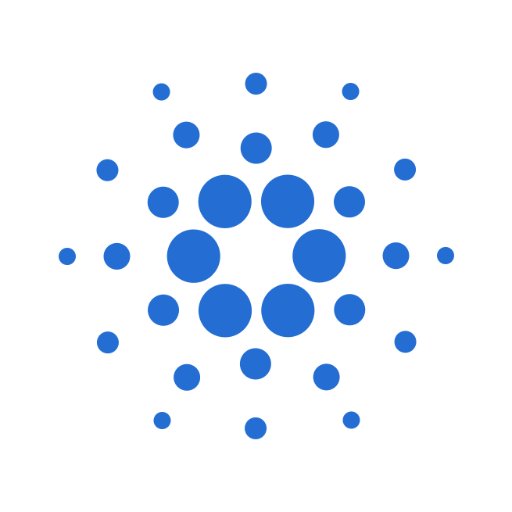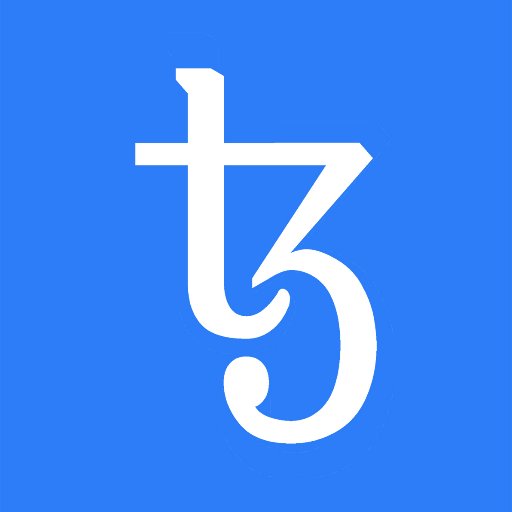So sánh Cardano (ADA) với Tezos (XTZ) Coin
Like never before, the world of cryptocurrency is witnessing a rising tide of competition playing out in various dimensions, especially between Cardano (ADA) and Tezos (XTZ). This article will delve into a comprehensive comparison between these two dominant forces in the digital currency universe, focusing on their primary attributes, technological edge, and trade-offs. Our aim is to arm prospective investors and technology enthusiasts with balanced insight for a more informed decision.
User rating
Cryptogeek rating
About
|
Cardano coin (ADA) is a cryptocurrency launched in 2017. The currency is based on the Cardano network. The leader of the dev team is Charles Hoskinson, an experienced developer who worked for Ethereum and BitShares prior to the launch of Cardano. Cardano is the first cryptocurrency to use academically peer-reviewed open-source code, which makes this project quite unique.
The consensus algorithm of Cardano is Proof-of-Stake. Cardano is usually praised for its high level of security and quick transactions. Cardano currency quickly gained value and became one of the top 10 cryptocurrencies by market capitalization.
|
Tezos is a smart contract platform with its own blockchain and a native token (Tezos, XTZ). The governance is performed via Proof-of-Stake algorithm. It means that stakeholders (those who own at least 10,000 XTZ) vote for changes in the protocol. These validators ("bakers") get rewards for the performance of validation. The rewards are generated via inflation. Those who delegate their XTZ to bakers can earn, too.
Tezos has a built-in "self-amendment" mechanism which makes it possible to shape the network without having to make forks. It keeps the community united and makes development process easier.
|
Type
Founding Date
Country
Languages
Team
Protocol
|
Public blockchain
|
Public blockchain
|
Current price (USD)
All-time high (USD)
Price change (24h)
Volume (24h)
|
58563715.15569
|
1473389.79967
|
Hashrate
Max Supply
|
45000000000.00000
|
No data
|
Total supply
Circulating Supply
|
45000000000.00000
|
1073909047.09230
|
Transaction speed / Block time
Transaction fee
Mining profitability
Algorithm
Proof type
Fully premined
Smart contract address
Total coins mined
|
25927070538.00000
|
810904882.00580
|
Is trading
Block reward
|
0.000000000000
|
0.000000000000
|
Block time
| Company |
|
|
| User rating |
User rating
4.3 / 5
7 user review
|
User rating
4.5 / 5
4 user review
|
| Cryptogeek rating |
Cryptogeek rating
3.8 / 5
|
Cryptogeek rating
3.4 / 5
|
| Trust Score
How it works
|
Trust Score
4.39 / 5
|
Trust Score
4.08 / 5
|
| About |
Cardano coin (ADA) is a cryptocurrency launched in 2017. The currency is based on the Cardano network. The leader of the dev team is Charles Hoskinson, an experienced developer who worked for Ethereum and BitShares prior to the launch of Cardano. Cardano is the first cryptocurrency to use academically peer-reviewed open-source code, which makes this project quite unique.
The consensus algorithm of Cardano is Proof-of-Stake. Cardano is usually praised for its high level of security and quick transactions. Cardano currency quickly gained value and became one of the top 10 cryptocurrencies by market capitalization.
|
Tezos is a smart contract platform with its own blockchain and a native token (Tezos, XTZ). The governance is performed via Proof-of-Stake algorithm. It means that stakeholders (those who own at least 10,000 XTZ) vote for changes in the protocol. These validators ("bakers") get rewards for the performance of validation. The rewards are generated via inflation. Those who delegate their XTZ to bakers can earn, too.
Tezos has a built-in "self-amendment" mechanism which makes it possible to shape the network without having to make forks. It keeps the community united and makes development process easier.
|
| Type |
Type
coin
|
Type
coin
|
| Founding Date |
Founding Date
2017
|
Founding Date
2016
|
| Country |
Country
International
|
Country
USA
|
| Languages |
Languages
No data
|
Languages
No data
|
| Team |
Team
Public
|
Team
Public
|
| Protocol |
Protocol
Public blockchain
|
Protocol
Public blockchain
|
| Current price (USD) |
Current price (USD)
0.7895
|
Current price (USD)
0.8072
|
| All-time high (USD) |
All-time high (USD)
1.3300
|
All-time high (USD)
4.4600
|
| Price change (24h) |
Price change (24h)
6.88
|
Price change (24h)
1.84
|
| Volume (24h) |
Volume (24h)
58563715.15569
|
Volume (24h)
1473389.79967
|
| Hashrate |
Hashrate
No data
|
Hashrate
No data
|
| Max Supply |
Max Supply
45000000000.00000
|
Max Supply
No data
|
| Total supply |
Total supply
No data
|
Total supply
No data
|
| Circulating Supply |
Circulating Supply
45000000000.00000
|
Circulating Supply
1073909047.09230
|
| Transaction speed / Block time |
Transaction speed / Block time
50
|
Transaction speed / Block time
15
|
| Transaction fee |
Transaction fee
No data
|
Transaction fee
No data
|
| Mining profitability |
Mining profitability
high
|
Mining profitability
medium
|
| Algorithm |
Algorithm
Ouroboros
|
Algorithm
No data
|
| Proof type |
Proof type
PoS
|
Proof type
DPoS
|
| Fully premined |
Fully premined
No data
|
Fully premined
No data
|
| Smart contract address |
Smart contract address
No data
|
Smart contract address
No data
|
| Total coins mined |
Total coins mined
25927070538.00000
|
Total coins mined
810904882.00580
|
| Is trading |
Is trading
yes
|
Is trading
yes
|
| Block reward |
Block reward
0.000000000000
|
Block reward
0.000000000000
|
| Block time |
Block time
No data
|
Block time
No data
|
Social
Website
Twitter
Advantages
|
Friendly
Peer-reviewed technology
Scalable
|
Has impressive on-chain governance
Self-amending blockchain
Secure smart contract programming language
|
Disadvantages
|
Competitors in the same space
Still in development
Multiple chains
|
ICO was followed by delays
Young ledger
High-risk investment
|
Rating
| User rating |
User rating
4.3 / 5
7 user review
|
User rating
4.5 / 5
4 user review
|
| Cryptogeek rating |
Cryptogeek rating
3.8 / 5
|
Cryptogeek rating
3.4 / 5
|
| Advantages |
Advantages
Friendly
Peer-reviewed technology
Scalable
|
Advantages
Has impressive on-chain governance
Self-amending blockchain
Secure smart contract programming language
|
| Disadvantages |
Disadvantages
Competitors in the same space
Still in development
Multiple chains
|
Disadvantages
ICO was followed by delays
Young ledger
High-risk investment
|
Cardano (ADA) user rating is 4.3, based on 7 user reviews. Tezos (XTZ) user rating is 4.5, based on 4 user reviews.
We also calculate the special Cryptogeek TrustScore based on the characteristics of each coin.
Choose other companies
In conclusion, there's no definitive verdict on whether Cardano (ADA) or Tezos (XTZ) is superior as both digital currencies present distinct virtues and have their unique areas of expertise. The choice between them largely depends on the individual investor's goals, risk appetite and perspective on their future developments. Hence, understanding the nuances, as laid out in this comparison, forms the bedrock of a more informed investment decision. Stay updated, stay invested, and stay informed!
Like never before, the world of cryptocurrency is witnessing a rising tide of competition playing out in various dimensions, especially between Cardano (ADA) and Tezos (XTZ). This article will delve into a comprehensive comparison between these two dominant forces in the digital currency universe, focusing on their primary attributes, technological edge, and trade-offs. Our aim is to arm prospective investors and technology enthusiasts with balanced insight for a more informed decision.

